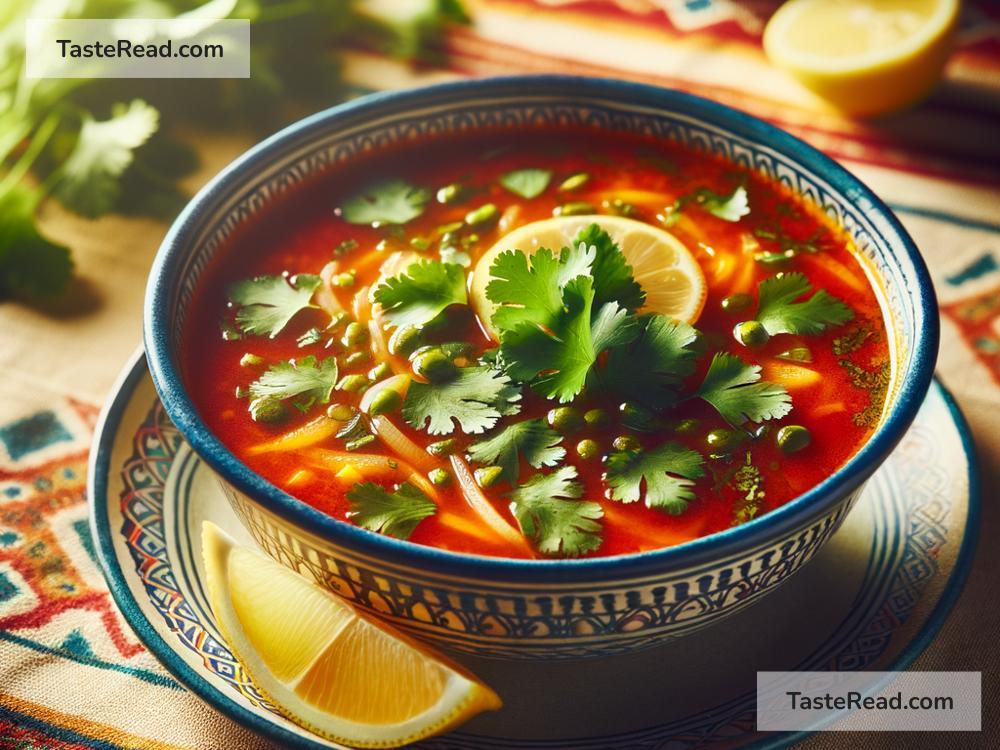How the Moroccan Harira Soup Became a Ramadan Favorite
As the sun sets and the call to prayer fills the air, marking the end of another day of fasting during Ramadan, families across Morocco and in Moroccan communities around the world gather around the dinner table. The star of this special meal is often a hearty, aromatic bowl of Harira Soup. This traditional Moroccan dish has become synonymous with Ramadan, breaking fast and bringing families together. But how did Harira Soup rise to such prominence during this holy month? Let’s dive into the heartwarming story of Harira’s journey to becoming a Ramadan favorite.
The Roots of Harira
Harira’s origins are as rich and varied as its ingredients. This soup has been a staple in Moroccan cuisine for centuries, its recipe passed down from generation to generation, each adding their twist. Traditionally, Harira is made with tomatoes, lentils, chickpeas, onions, rice, and meat, usually lamb or beef, and is flavored with a blend of herbs and spices like cilantro, parsley, celery, and saffron. A true reflection of Morocco’s vibrant history and culture, Harira is a melting pot of flavors, with each ingredient telling a story of the country’s Berber, Arab, and Andalusian influences.
Harira and Ramadan: A Match Made in Heaven
Ramadan is a month of fasting, reflection, and community in the Islamic calendar. From dawn until sunset, Muslims refrain from eating or drinking as a form of spiritual cleansing and devotion. When the day’s fast ends, the meal that follows, known as Iftar, is a time of celebration and gratitude. Harira Soup has become a favorite for breaking the fast, and there are several reasons why.
Firstly, after a long day of fasting, the body needs nourishment and hydration. Harira is incredibly nutritious, packed with protein from the meat, lentils, and chickpeas, giving a much-needed energy boost. The broth is hydrating, and the rich blend of spices helps kickstart the digestion process, making it the perfect first meal after a day of fasting.
Secondly, Harira is a symbol of warmth and comfort. The act of breaking fast is not just about satisfying hunger; it’s a moment of joy and community. Sharing a bowl of Harira with family and friends brings comfort and a sense of belonging. It embodies the spirit of Ramadan: generosity, family, and unity.
Lastly, the nature of Ramadan involves deep spiritual reflection and connection to tradition. Harira, with its centuries-old roots and place in Moroccan culture, serves as a bridge to the past. Eating Harira during Ramadan is a way for many to connect with their heritage and the generations before them who observed the holy month with the same sacred rituals.
Harira’s Popularity Beyond Morocco
While Harira holds a special place in Moroccan hearts, its fame has spread far beyond the country’s borders. Today, Harira is enjoyed by Muslims and non-Muslims alike, around the world, especially during Ramadan. Its universal appeal lies in its rich taste, nutritional value, and the comfort it brings, making it a global symbol of breaking fast during the holy month.
Moroccan expatriates have played a significant role in popularizing Harira abroad. As they set roots in new lands, they brought their culinary traditions with them, sharing Harira with their new communities. Additionally, the global interest in exploring different cuisines has seen many food enthusiasts embrace Harira, whether it’s made at home, enjoyed in a Moroccan restaurant, or as part of a community iftar during Ramadan.
Conclusion
Harira Soup’s journey to becoming a Ramadan favorite is a tale of tradition, nourishment, and community. More than just a meal, it’s a celebration of Moroccan culture and the enduring spirit of Ramadan. As families around the world gather around their tables to break their fast with a bowl of Harira, they are not just feeding their bodies but nourishing their souls, embracing a centuries-old tradition that continues to bring people together in the sacred month of Ramadan.
So, whether you’re observing the holy month or simply looking to explore the flavors of the world, a bowl of Harira offers more than just sustenance. It’s an invitation to partake in a rich cultural heritage, a gesture of hospitality, and a reminder of the shared humanity that connects us all, one spoonful at a time.


